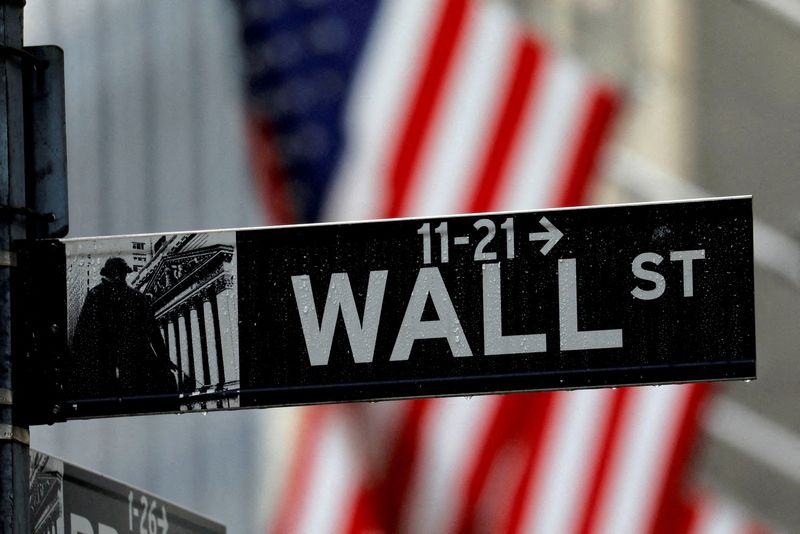By Douglas Gillison, Nupur Anand and Tatiana Bautzer
(Reuters) - Now that regulators in Washington have unfurled a hefty reform package of post-financial crisis capital regulations, banking industry advisers are honing in on what they consider most disruptive, including risk management requirements that could affect real estate lending, consumer credit and wealth management.
In a joint proposal on July 27, the top three U.S. bank regulators proposed a thousand-page overhaul that would in aggregate require banks to set aside an additional 16% in capital the regulators believe is needed to strengthen the financial system.
By increasing the degree of risk attributed to certain assets, the proposed rules would require banks to hold proportionately more capital, potentially eating into returns on equity and profits. Industry lobby groups such as the Financial Services Forum (FSF), the Bank Policy Institute and the Securities Industry and Financial Markets Association have argued this will make it harder to lend to consumers and warn it will slow the economy.
Though the spring of 2023 saw three of the four biggest bank failures in U.S. history, the FSF reacted to the proposal by saying the Federal Reserve's own stress tests show the largest banks were sound and well capitalized, making the proposal "a solution without a problem."
Industry analysts see areas which the well-financed bank lobby will be eager to red-pencil.
Joe Sass, senior vice president for balance sheet risk at financial services conglomerate FIS, said the proposal's shift from a standard risk charge to a range of risk levels to be allocated to different assets for rental-backed real estate lending would likely be "circled for push-backs."
Making such lending more expensive will shrink credit available to historically under-served borrowers, something the industry is likely to fight, he said.
Chen Xu, an attorney in the financial institutions group at Debevoise & Plimpton, said the new rules viewed high-revenue business lines as higher risk.
"Some businesses that are fee-based such as wealth management will need to allocate more capital even if there is no balance sheet risk," he said, adding that this could weigh on trading in capital markets.
Reform proponents argue the true danger to public welfare is financial instability.
Fed representatives did not offer to comment for this article. But when announcing the proposal, Fed Vice Chair for Supervision Michael Barr said "extensive analysis" indicated the benefits of a strong financial system "outweigh the costs to economic activity" that may come with holding more capital.
Major banks have commented only sparingly on the proposal. JPMorgan Chase (NYSE:JPM) CEO Jamie Dimon told CNBC on Wednesday that it was "hugely disappointing," claiming it was poorly designed and would shrink access to credit for consumers and small businesses.
Wells Fargo (NYSE:WFC) said it had no comment beyond an Aug 1 regulatory filing in which it said the proposals were likely to alter its risk gauges for lending and result in a net increase in its capital requirements.
A representative from Citigroup (NYSE:C) declined to comment. Bank of America (NYSE:BAC) didn't respond to a request for comment.
According to Kevin Stein, a senior adviser at the financial services advisory firm Klaros Group, the new risk-weight norms could drive more business to non-bank lenders beyond the reach of regulators.
The bank lobby has had plenty of time to gear up for this battle as the July proposal was six years in the making. It is intended to implement a final set of post-financial crisis reforms, often known as Basel III "Endgame" agreed to in 2017 by the Basel Committee on Banking Supervision, which comprises regulators from major economies.
Morgan Stanley (NYSE:MS) analysts say the largest banks may take up to four years to set aside profits to comply with the new capital rules. However, Richard Ramsden, a Goldman Sachs (NYSE:GS) analyst covering large banks, said the biggest lenders face an unexpectedly onerous climb.
The increase in risk-weighted assets translates to about $135 billion in incremental capital requirements, or about 200 basis points of common equity tier-one capital for the biggest banks, Ramsden said.
"The banks will have to make decisions pretty much now. What are they going to do with buy-backs? What are they going to do in terms balance sheet management?" he asked.
Dennis Kelleher, head of the financial reform advocacy group Better Markets, said the banking industry had made similar complaints in the past which he believed had proven unfounded.
"Wall Street is expert at hiding their special interests behind the concerns of others, which they inflame with scare tactics and false claims," he said.
"What they don't talk about is the threat to the economy and lending and main street and families and contagion from under-capitalized banks."
(This story has been corrected to fix the spelling of FIS executive's name to Joe Sass in paragraph 6)
